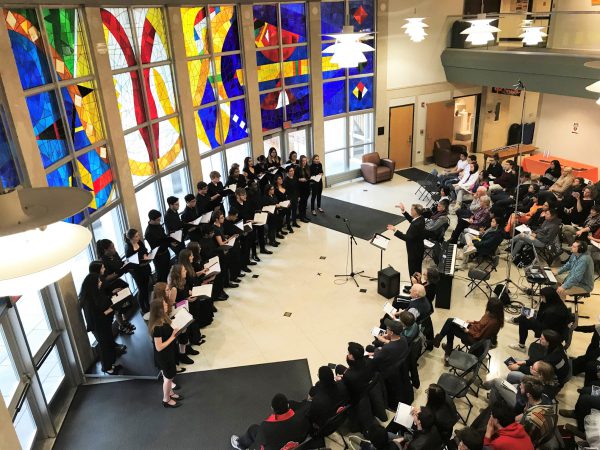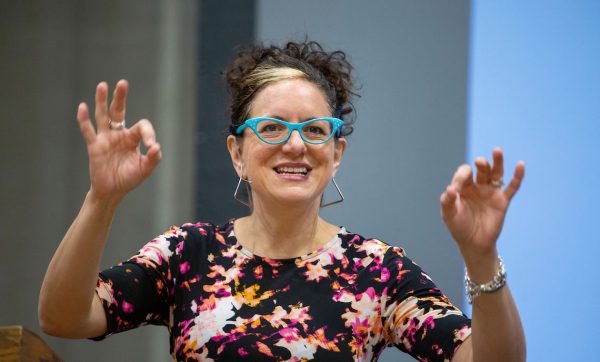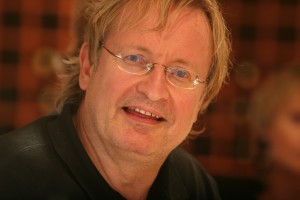A Detroit-based experimental theatre company, co-directed by Kalamazoo College alumna Liza Bielby ’02, will present its newest project, a critically acclaimed play billed as a funeral for whiteness, this month in the Olmsted Room at Mandelle Hall.
Will You Miss Me? layers traditional Appalachian songs with family secrets, ancient Welsh mythology, brutal comedy, and rituals—both inherited and invented—to push audiences to examine the stories we tell ourselves about who we are and grieve the selves that have been forgotten.
When a haunting song echoes, a weary traveler is drawn into a funeral service for one of many white workers who moved from Appalachia to Detroit in the past century. But as the funeral unfolds, the mourners are confronted by their pasts, their ancestors, and helpful and malicious spirits. Their confusion forces them to question whether they even knew the man they’re mourning and whether he existed at all.
The Hinterlands troupe will provide two performances of Will You Miss Me? at 7:30 p.m. Saturday, September 28, and 2 p.m. Sunday, September 29. Attendees will be admitted free thanks to sponsorships from the Arcus Center for Social Justice Leadership; K’s philosophy, critical ethnic studies, theatre and music departments; and the Office of Student Involvement. No reservations are necessary, but seating will be limited.
Bielby is a former Fulbright Scholar; a student of the Sichuan Chuanju Academy, now Sichuan Vocational College of Art; a graduate of the Dell’Arte International School of Physical Theatre; a board member of the Bangla School of Music; and a professor of movement at Wayne State University’s Maggie Allesee Department of Theatre and Dance. Bielby, Jenna Kirk, Richard Newman and Maddy Rager are performers in the show with direction from Bielby and Newman. Kirk and Bielby serve as scenic designers. Livia Chesley—who acted in the original performance—designed the show’s masks and puppets with assistance from Monty Eztcorn.
Will You Miss Me? premiered in 2022 with outdoor versions of the piece performed at Spread Art in Detroit; Tympanum in Warren, Michigan; and Double Edge Theatre in Ashfield, Massachusetts. In 2023, the piece was presented at Play House in Detroit and at Mint Museum in Charlotte, North Carolina, through Goodyear Arts with lecture-performance versions shown at the University of Michigan Flint and Teatro Libre in Bogotá, Colombia.
“It hit me on a body level, a gut level, and it sent me into a kind of reverie that I haven’t felt from a piece in a long time,” said Zak Rose of Slate Magazine. “I was haunted by it, not just on my drive home, but I woke up the next day thinking about it. I kept talking about it and l couldn’t get back to my life before buying a ticket to go see it again the following week.”
For more information on Will You Miss Me? and the Hinterlands company, visit thehinterlands.org.














